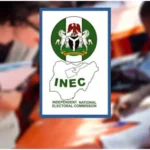It is now an open warfare breaking out within the two leading political parties, the All Progressives Congress (APC) and the Peoples Democratic Party (PDP). Up till a few days ago, this bristling struggle had been the exclusive shame of the PDP where Governor Nyesom Wike of Rivers State leading a convoy of other disgruntled governors have all been out there campaigning against the presidential candidate of their party. Ever since the PDP primaries, Governor Wike, a sour looser, has galvanised these governors into an unrelenting opposition within the party, refusing all entreaties to back down.
Sadly, this wind of disaffection has arrived at the doorsteps of the APC, and it is also blown principally by governors of the party. Many saw this coming, as soon as the redesigning of the naira was announced some three months ago, to be accomplished by Godwin Emefiele, the governor of the Central Bank of Nigeria (CBN). In an earlier piece on this page titled, ‘Is Emefiele the Wike in APC’, I had written: ‘The decision of Godwin Emefiele, the governor of the Central Bank of Nigeria (CBN) to unleash the naira redesign, complete with an untenable closing date, has stressed the public in the last few days and added fuel to the raging fire of discontent among the generality of Nigerians against the government of the day. Ruling parties approaching major elections, such as we expect soon, do not undertake this kind of risky venture. From my perspective, it is patently mule-headed to continue to insist on completing the exercise within such a short period’.
Since the stiffening of the policy and the approach of the deadline of February 10, it has been regular bedlam in the country. A policy that was presented by the government and CBN as a cash swap degenerated willy-nilly into cash confiscation. Much of the old cash has been taken away from the economy with little of the new cash making an appearance. The CBN was patently not ready for such a sweeping exercise. The new notes did not even appear until the deadline was in sight. They were neither readily available across the counters in the commercial banking halls, ATMs, or markets and shops.
Clearly, the CBN badly or mischievously implemented the good intention of the government.
The haphazard implementation of the policy and its systemic implications was hugely unpopular and at this time of election could turn the populace against the ruling party, the APC. And the fact that the exercise is being led by Emefiele, a failed presidential aspirant of the APC, generated suspicions of sabotage. And so it was understood by Bola Tinubu, the presidential candidate of the APC, which made him fire the first salvo accusing faceless members of a cabal in the presidential villa determined to stop him from winning the election. He spoke at a rally in Abeokuta, making his accusation plain in Yoruba language. Tinubu said: “Let them hoard money, the naira, we will go and vote, and we will win. Even if they change the ink on naira notes; whatever their plans, it will come to nought. We are going to win.”
This was the first volley in the ensuing battle within the APC. Supporting governors within the APC quickly picked the cue and started airing similar views. Governor El-Rufa’i subsequently led a few other governors to file a suit in the Supreme Court to order the federal government to suspend the policy due to the scarcity of the new naira notes. A few days later the Supreme Court entered an interim order against the CBN banning it from going ahead with its deadline for the end of the use of the old naira notes until February 15 the next sitting of the court. And when it sat on the 15th, the Supreme Court reiterated its interim order. To the shock of many, the CBN, probably backed by an intransigent presidency refused to comply.
I have lived through many changes to our currency starting from when the naira was introduced in January 1973 to replace the pound sterling in use. I was spending my second year in the university and can recollect that momentous event as a flawless exercise, despite the complications of the country going from a sterling currency, pounds, shillings, and pence, to the decimal-based currency of naira and kobo. The 1984 exercise was a harrowing experience when the nation was given only two weeks to change to the new currencies. Then, as we are also being told today, the exercise was targeted at corrupt politicians and their ill-gotten wealth. Those who suffered most were the illiterate, the poor, and those who had no easy access to banks.
We are treading the same path again with the CBN giving an untenable deadline, mopping up currency with insufficient quantity as a replacement, and inducing mass panic in banks and ATMs. Despite all sane advice from the Council of State, state governors of the party, and the National Assembly leadership, plus a face-saving Supreme Court order to tarry awhile, the government, like a captain of a deluded ship, is going right ahead and carrying us along into despair.

 Join Daily Trust WhatsApp Community For Quick Access To News and Happenings Around You.
Join Daily Trust WhatsApp Community For Quick Access To News and Happenings Around You.


